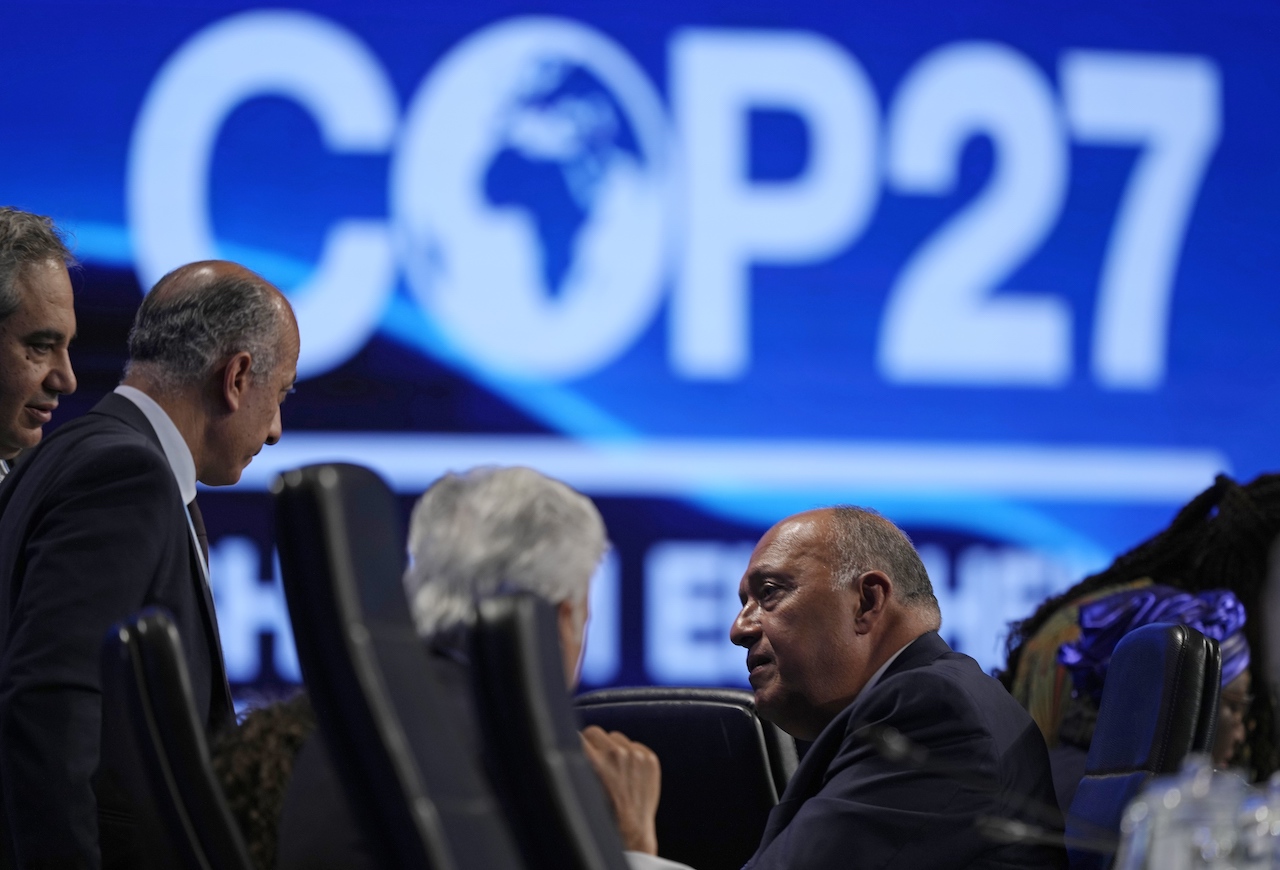Agreement on the creation of a climate ‘loss and damage’ fund for developing countries was the highlight of a summit which disappointed those calling for greater climate action

In brief
- After a war of attrition, countries have reached an agreement at the climate summit in Egypt.
- European Commissioner Timmermans continued to fight for stricter climate targets, but did not get his way.
- A breakthrough is a climate loss and damage fund for developing countries.
The United Nations (UN) climate summit in Sharm el-Sheikh has ended on a low note. Countries have made few agreements about reducing greenhouse gases, while the EU has argued for more climate action. There will be a climate ‘loss and damage’ fund for the most vulnerable developing countries. This is a huge boost for poor countries.
After two weeks of negotiations among almost two hundred countries, it was not until Sunday (20 November) morning that a climate agreement was reached. European Commissioner Frans Timmermans continued to fight for stricter climate targets until the end, but did not get his way. “What we have in front of us is not enough of a step forward for people and planet,” he said wearily after a night of negotiations.
At the summit in Glasgow last year, countries had pledged to phase out coal and “inefficient fossil fuel subsidies”. A proposal to scale down “all fossil fuels” did not make it through.
The Dutch cabinet is also critical of the lack of progress. Climate Minister Rob Jetten said it was “extremely disappointing” that countries are not showing more ambition. For the UK ” this is not a moment of unqualified celebration”, said chief negotiator Alok Sharma, who led the previous climate summit in Glasgow.
Climate ‘loss and damage’ fund
For a moment, the climate summit seemed to end without an agreement. In the final phase, the EU threatened to leave if countries did not show more climate action. “Better no result than a bad result,” said Timmermans.
The EU put its signature to it because it did not want to ruin another important outcome: for the first time, countries have agreed to a climate damage fund for the most vulnerable developing countries. Rich countries with high greenhouse gas emissions will pay for climate disasters that are already happening. The issue was the most sensitive subject of the negotiations in Sharm el-Sheikh.
“It’s a small victory for humanity,” said Avinash Persaud, the climate envoy for the small island state of Barbados. Timmermans added: “We had to give up some of the things we wanted, to help other parties.”
The summit in Egypt came just after a summer of intense flooding in Pakistan that left nearly 2,000 dead and $30 billion in economic damage. There was a lot of references to that during the summit.
UN
UN Secretary-General António Guterres said: “A fund for loss and damage is essential – but it’s not an answer if the climate crisis washes a small island state off the map – or turns an entire African country to desert. The world still needs a giant leap on climate ambition.”
How much money will come into the damage fund and whether China will also pay, will be discussed by committee with people from 24 countries in the coming year. That is also a loss for the EU, which made it a firm requirement that this climate summit should determine that all rich countries invest money in the fund. The text of the climate agreement is also quite vague about the specific details of the fund.
Chaos
Not only the outcome of the summit is disappointing. European countries are angry about how the negotiations went. Until the end, the publication of texts containing the content of the agreement, for example, remained chaotic.
For example, some countries signed the agreement without having read the entire text. At the very last minute, Egypt came up with a sentence stating that energy “with low emissions” can contribute to combating climate change. This implies that natural gas is a solution to the climate crisis – the fossil fuel emits less CO₂ than oil and coal. “It’s a mystery” how this got into the deal, New Zealand’s climate minister James Shaw said afterwards.
Timmermans said he wants to do everything he can to achieve more climate action at the next climate summit. In 2023, the climate summit will be held in Dubai, United Arab Emirates.
This article was originally published in Dutch business newspaper FD on 20 November 2022.






